Contribution to the cosmetics industry regarding the improvement of safety and technology
Seminars and information
Japan Cosmetic Industry Association (JCIA) conducts various seminars and provides informations to support the cosmetics industry, aiming to improve the level of cosmetics safety and technology.
1. JCIA Technology Meeting
Annual members-only reporting sessions hosted by the Science & Technology Committee of the JCIA to update the information related to cosmetics technology. Reports are made from subcommittees of the Science & Technology Committee (Safety Subcommittee, New Approach Methodology Subcommittee, Technology Information Subcommittee, Cosmetics Raw Material Subcommittee, Quasi-drug Standards Subcommittee, Color Additive Subcommittee, Photoprotection Subcommittee, Microbiology Subcommittee, Organic/Natural Cosmetics Subcommittee).
2. Cosmetics Safety Evaluation Seminars (beginner level and introductory practice level)
In seminars, the importance of safety evaluation of cosmetics and the practice of safety evaluation of cosmetic ingredients are explained. Seminars are held every year for members only.
3. Guidance for the Safety Assessment of Cosmetics (2022)
Safety Subcommittee and New Approach Methodology Subcommittee of JCIA Science & Technology Committee compile information on the latest technologies related to the safety evaluation of cosmetics and release the results. Technology Material No.144 (written in Japanese only) can be downloaded online free of charge (members only). The limited printed versions (written in Japanese only) are sold for both members and non-members.
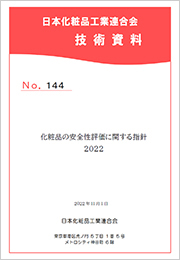
4. Promotion of Raw Material Information Files (RMIF)
We have created Raw Material Information File (RMIF), a communication tool on the regulations of cosmetics ingredients and safety-related qualities to be used between cosmetics marketing authorization holders and raw materials manufacturers/suppliers. We promote the RMIF as a tool to meet the Product Information File and other requirements by overseas regulations. For this purpose, Technology Material No.142 (How to Use the RMIF) data can be downloaded free of charge online (JCIA members only).
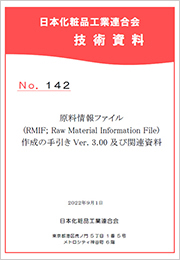
5. Seminars on Microbiological Test Methods and Microbial Management Manual
Seminars on microbial preservation efficacy test methods for cosmetics (on-demand video also available) and a manual on microbial management, which can be downloaded online free of charge (JCIA members only).
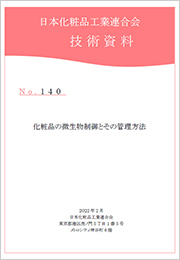
6. Manual for the Japanese Standards of Quasi-Drug Ingredients
A manual to understand the Japanese Standards of Quasi-Drug Ingredients prepared by Quasi-drug Standards Subcommittee can be downloaded online free of charge (JCIA members only).
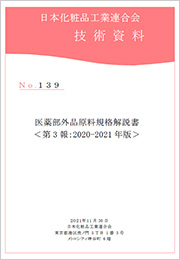
7. Technological Literature Information
List of literatures concerning safety and efficacy of cosmetic ingredients, legal information, dermatological science, formulation technology, etc. It also contains safety information useful for collecting information on post-marketing surveillance. Published 10 issues a year. One printed version per issue is provided free of charge to member companies. Online versions can be downloaded free of charge (JCIA members only).
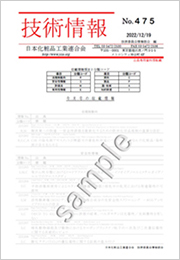
8. Technology Material
Technology materials associated with the Science & Technology Committee (materials from the JCIA Technology Meeting, Guidelines for the Safety Assessment of Cosmetics, How to Use the RMIF, Information on Microbial Control and their Management Methods for Cosmetics, Manual for the Japanese Standards of Quasi-Drug Ingredients, Comparison Tables for old and new Japanese Standards of Quasi-Drug Ingredients, etc.) are issued when needed. Online versions can be downloaded free of charge (JCIA members only).
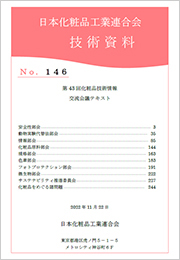
9. Providing Safety Information and Voluntary Standards (Self-regulatory Standards)
We take preventive actions on risk information by globally collecting information on ingredients used in cosmetics, proactively planning the actions, and providing information. In addition, we implement voluntary standards to improve the credibility of the cosmetic industry among consumers.

